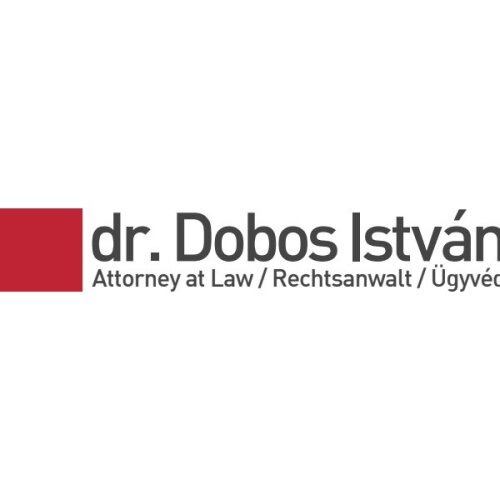Best Energy Regulatory Law Lawyers in Hungary
Share your needs with us, get contacted by law firms.
Free. Takes 2 min.
Or refine your search by selecting a city:
List of the best lawyers in Hungary
About Energy Regulatory Law in Hungary
Energy Regulatory Law in Hungary governs the production, transmission, distribution, and supply of energy, including electricity, natural gas, and renewable sources. The legal framework is designed to ensure safe, secure, and efficient operation of energy markets, while aligning with European Union directives and regulations. The Hungarian Energy and Public Utility Regulatory Authority (HEA or MEKH) is the primary body overseeing compliance, licensing, and consumer protection in the energy sector.
Why You May Need a Lawyer
Seeking legal assistance in Energy Regulatory Law is recommended for individuals, companies, or organizations dealing with issues such as applying for energy licenses, negotiating power purchase agreements, resolving disputes with regulators or suppliers, navigating compliance requirements, or entering new energy markets in Hungary. Lawyers specializing in this area can help interpret complex regulations, represent clients in administrative procedures, and provide strategic guidance for investment or infrastructure projects involving electricity or gas.
Local Laws Overview
Hungarian energy regulation is rooted in national laws, such as Act No. 40 of 2008 on Natural Gas Supply and Act No. 127 of 2007 on Electricity. These laws are supplemented by decrees and regulatory guidelines, as well as EU legislation and directives. Key topics addressed include market entry, licensing procedures, grid access, regulated tariffs, unbundling requirements, consumer rights, and renewable energy incentives. The HEA has broad authority to monitor compliance, impose penalties, and mediate disputes. Ongoing energy reforms and Hungary's commitments to EU energy policy often result in changing regulatory obligations, especially regarding renewable energy and carbon reduction targets.
Frequently Asked Questions
What is the role of the Hungarian Energy and Public Utility Regulatory Authority (HEA/MEKH)?
The HEA is the national regulatory authority responsible for overseeing and regulating Hungary's energy markets. Its functions include issuing licenses, setting network tariffs, monitoring market operations, ensuring compliance, and protecting both consumer and public interests.
Do I need a license to operate in the Hungarian energy market?
Yes, most activities such as electricity generation, supply, and natural gas distribution require specific licenses from the HEA. There are different types of licenses, each with its own requirements and application procedures.
How are energy prices and tariffs regulated in Hungary?
Certain prices, especially for residential consumers and public utilities, are regulated by the HEA. Wholesale and industrial tariffs may be subject to market forces, but are still monitored for fairness and competition compliance.
What are the main requirements for building an energy generation project?
Projects must comply with zoning laws, environmental regulations, technical safety standards, and obtain permits from various authorities, including an operating license from the HEA and, for renewables, additional incentives or quotas may apply.
How are renewable energy sources regulated?
Hungary promotes renewables through subsidies, feed-in tariffs, and priority grid access. License requirements and eligibility for incentives are governed by national and EU laws, and frequent changes may occur as Hungary aligns with EU targets.
How are disputes in the energy sector resolved?
Disputes may be resolved through administrative procedures before the HEA, arbitration, or national courts depending on the nature and parties involved. Some consumer disputes are handled by specific mediation bodies.
What are the unbundling requirements for energy companies?
European and Hungarian laws require the separation of certain utility functions, such as transmission and supply, to ensure competition and prevent conflicts of interest. Unbundling obligations depend on the type and size of the operator.
Are foreign investors allowed to enter the Hungarian energy market?
Yes, Hungary permits foreign ownership or investment in its energy sector, but investors must comply with all licensing, regulatory, and competition requirements. Some strategic assets may be subject to additional approval.
Does the law address consumer protection in energy markets?
Yes, consumer rights are strongly protected, including clear billing, transparent pricing, the right to change suppliers, and special protection for vulnerable consumers. The HEA monitors complaints and enforces these regulations.
How do European Union regulations affect Hungarian energy law?
Hungary, as an EU member, implements all relevant EU energy directives and regulations. This influences market structure, competition law, renewable energy policies, and environmental standards within the country.
Additional Resources
- Hungarian Energy and Public Utility Regulatory Authority (MEKH) - Ministry of Energy - Hungarian Competition Authority (GVH) - National Consumer Protection Authority - European Commission Directorate-General for Energy - Hungarian Chamber of Commerce and Industry, Energy Section - Association of Hungarian Energy Traders
Next Steps
If you believe you need legal assistance regarding Energy Regulatory Law in Hungary, start by identifying the specific issue or project you are dealing with, such as licensing, a compliance question, or a dispute. Gather all supporting documents and information. Contact a legal professional with experience in energy law and regulatory matters. Most lawyers can offer an initial consultation to assess your needs and suggest a strategy. You may also consult the HEA or relevant government bodies for preliminary guidance or forms, but complex legal issues often require tailored legal advice. Acting promptly is crucial to comply with legal deadlines and avoid penalties.
Lawzana helps you find the best lawyers and law firms in Hungary through a curated and pre-screened list of qualified legal professionals. Our platform offers rankings and detailed profiles of attorneys and law firms, allowing you to compare based on practice areas, including Energy Regulatory Law, experience, and client feedback.
Each profile includes a description of the firm's areas of practice, client reviews, team members and partners, year of establishment, spoken languages, office locations, contact information, social media presence, and any published articles or resources. Most firms on our platform speak English and are experienced in both local and international legal matters.
Get a quote from top-rated law firms in Hungary — quickly, securely, and without unnecessary hassle.
Disclaimer:
The information provided on this page is for general informational purposes only and does not constitute legal advice. While we strive to ensure the accuracy and relevance of the content, legal information may change over time, and interpretations of the law can vary. You should always consult with a qualified legal professional for advice specific to your situation.
We disclaim all liability for actions taken or not taken based on the content of this page. If you believe any information is incorrect or outdated, please contact us, and we will review and update it where appropriate.
Browse energy regulatory law law firms by city in Hungary
Refine your search by selecting a city.

















